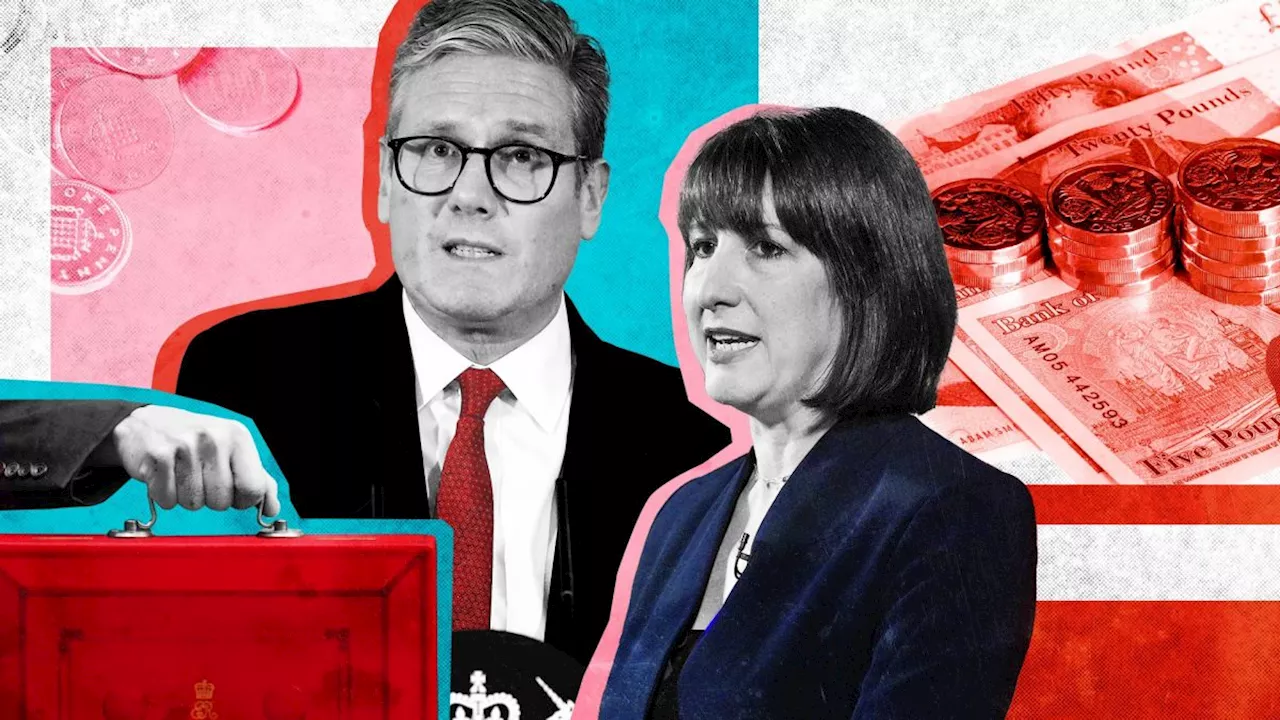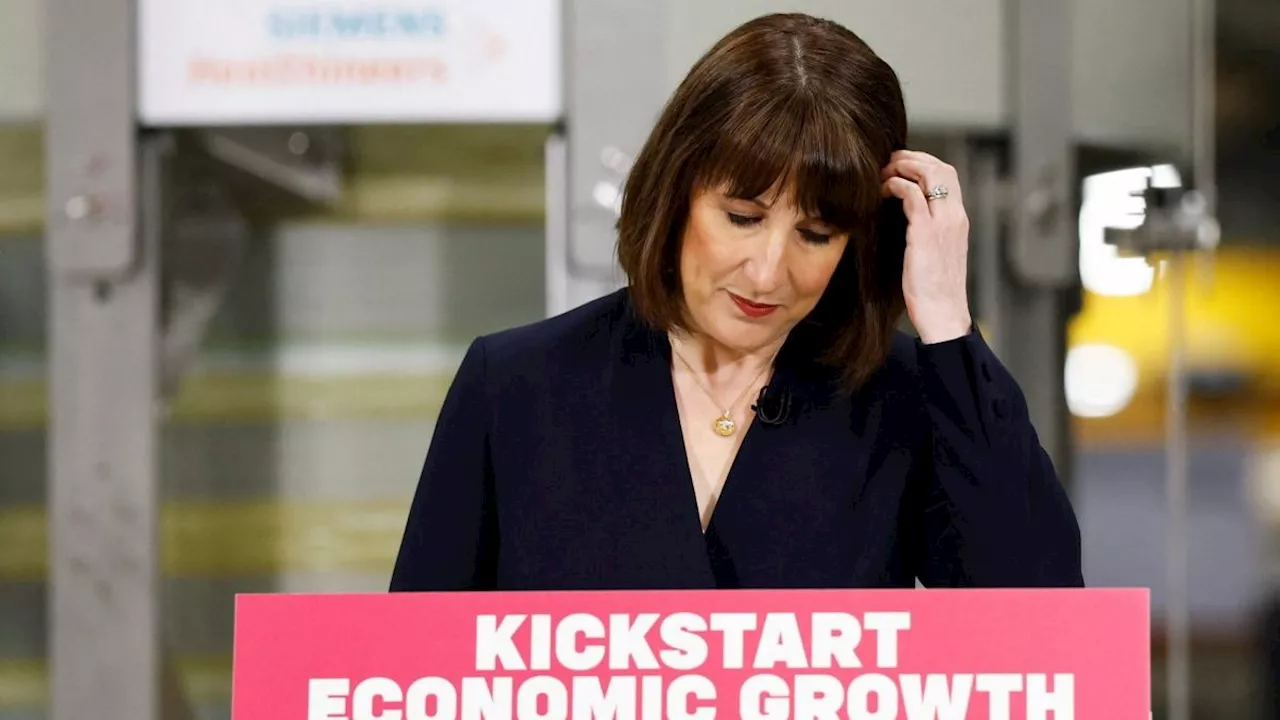The EY ITEM Club has downgraded its UK economic growth projections for 2025, citing ongoing pressure on businesses facing tax and wage hikes. The forecast predicts a slower recovery than previously anticipated, with a 1% growth rate, down from 1.5%.
The UK economy is forecast to improve more slowly than previously predicted, following stagnant growth late last year. The EY ITEM Club expects UK gross domestic product (GDP) to grow by 1% in 2025, down from an earlier estimate of 1.5%. This economic forecaster is the latest influential group to revise its predictions downward amid continued pressure on businesses, which face further tax and wage increases in April.
This represents another setback to Chancellor Rachel Reeves' ambitions for rapid economic growth. The forecasts also indicate 0.8% growth across the economy last year, suggesting only a slight acceleration in economic expansion. This follows a weaker second half of 2024, with a worse-than-expected 0.1% rise in GDP in November and a 0.1% monthly decline in October. The economy had remained essentially flat during the third quarter of the year. However, the UK is anticipated to experience stronger growth next year, with forecasts suggesting a potential 1.6% rise in 2026. Anna Anthony, EY UK regional managing partner, stated: 'Despite the subdued close to 2024, there are indications that the UK economy could be turning a corner and achieving stronger levels of growth this year. Following an extended period of financial uncertainty, we should start to witness an improvement in consumer confidence as real wages continue to increase, with many households feeling less financial strain by the end of 2025.' Anthony further added: 'The outlook for UK businesses is more mixed. While business investment is projected to rise, tightening financial conditions and global trade uncertainty are likely to dampen private sector confidence during the first half of this year.
ECONOMY UK GROWTH FORECASTS BUSINESSES TAXES WAGES
United Kingdom Latest News, United Kingdom Headlines
Similar News:You can also read news stories similar to this one that we have collected from other news sources.
 World Bank Forecasts Slower Growth in Caucasus and Central AsiaThe World Bank predicts a slowdown in economic growth for Caucasus and Central Asian nations over the next two years. Georgia and Azerbaijan are expected to see the most significant declines in real GDP growth, driven by political instability and a drop in oil production respectively. While Armenia will experience a moderate slowdown, growth in most Central Asian nations is projected to remain flat or dip slightly. Kazakhstan's growth is expected to increase in 2025 due to higher oil exports, but then settle back down. Tajikistan is projected to be the weakest performer in Central Asia.
World Bank Forecasts Slower Growth in Caucasus and Central AsiaThe World Bank predicts a slowdown in economic growth for Caucasus and Central Asian nations over the next two years. Georgia and Azerbaijan are expected to see the most significant declines in real GDP growth, driven by political instability and a drop in oil production respectively. While Armenia will experience a moderate slowdown, growth in most Central Asian nations is projected to remain flat or dip slightly. Kazakhstan's growth is expected to increase in 2025 due to higher oil exports, but then settle back down. Tajikistan is projected to be the weakest performer in Central Asia.
Read more »
 Starmer to Link NHS Backlog Reduction to Economic GrowthLabour Leader Sir Keir Starmer is set to argue that tackling the NHS backlog will boost the UK economy by returning people to work.
Starmer to Link NHS Backlog Reduction to Economic GrowthLabour Leader Sir Keir Starmer is set to argue that tackling the NHS backlog will boost the UK economy by returning people to work.
Read more »
 PM Hopes Deregulation Can Kickstart Economic GrowthUK Prime Minister Keir Starmer is pushing for deregulation to stimulate economic growth, aiming to reduce the financial burden on businesses and boost investment. However, concerns have been raised that removing protections could jeopardize financial stability and leave the public vulnerable.
PM Hopes Deregulation Can Kickstart Economic GrowthUK Prime Minister Keir Starmer is pushing for deregulation to stimulate economic growth, aiming to reduce the financial burden on businesses and boost investment. However, concerns have been raised that removing protections could jeopardize financial stability and leave the public vulnerable.
Read more »
 Labour MP Accuses Chancellor of 'Forgetting' the North in Economic Growth PlansLabour MP Graham Stringer criticizes Chancellor Rachel Reeves' focus on Southern infrastructure projects, arguing that the North of England has been neglected.
Labour MP Accuses Chancellor of 'Forgetting' the North in Economic Growth PlansLabour MP Graham Stringer criticizes Chancellor Rachel Reeves' focus on Southern infrastructure projects, arguing that the North of England has been neglected.
Read more »
 Rachel Reeves Accused of 'Forgetting' the North in Economic Growth PlansChancellor Rachel Reeves faces criticism for prioritizing Southern projects in her economic growth plans, neglecting investments in the North of England. Labour MP and other critics point out the disproportionate allocation of funding towards London and the Southeast, while essential infrastructure projects in the North remain underfunded.
Rachel Reeves Accused of 'Forgetting' the North in Economic Growth PlansChancellor Rachel Reeves faces criticism for prioritizing Southern projects in her economic growth plans, neglecting investments in the North of England. Labour MP and other critics point out the disproportionate allocation of funding towards London and the Southeast, while essential infrastructure projects in the North remain underfunded.
Read more »
 Labour's Economic Plans: Growth Boost or Hindrance?This article examines Labour's economic plans, particularly focusing on their potential impact on growth. It highlights concerns raised by businesses about potential tax increases and employment rights reforms, arguing that these measures might stifle rather than encourage economic expansion.
Labour's Economic Plans: Growth Boost or Hindrance?This article examines Labour's economic plans, particularly focusing on their potential impact on growth. It highlights concerns raised by businesses about potential tax increases and employment rights reforms, arguing that these measures might stifle rather than encourage economic expansion.
Read more »
